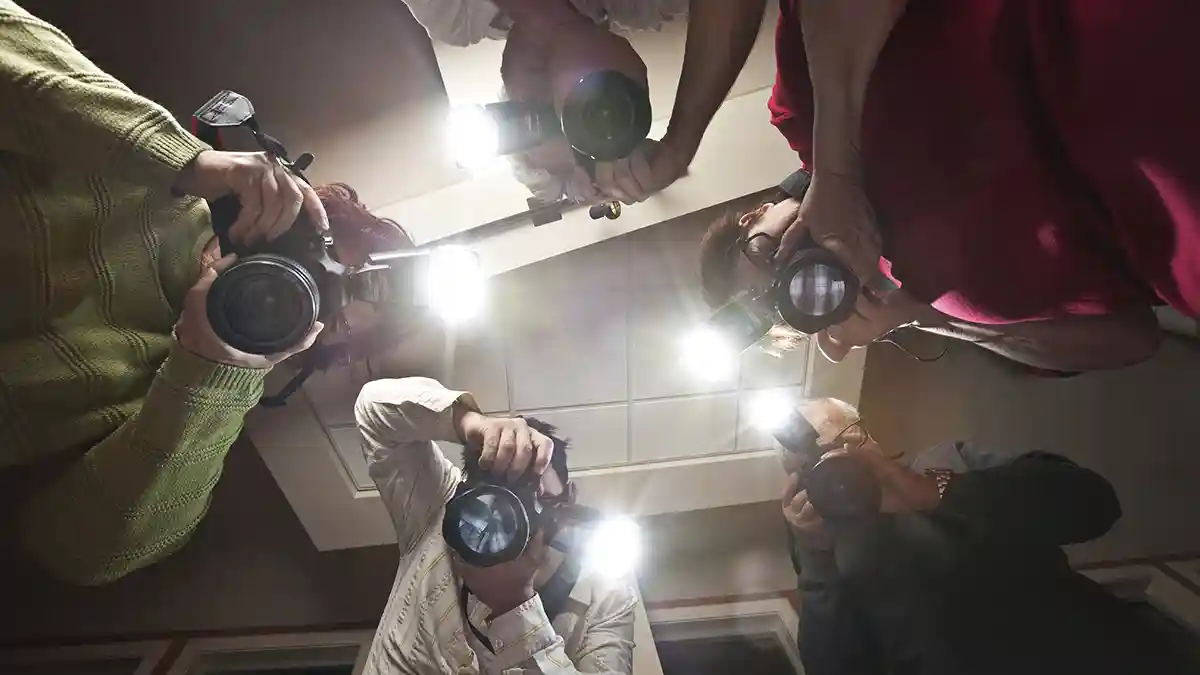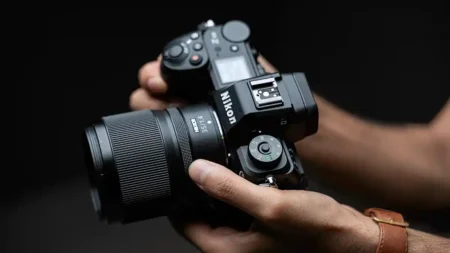As the onward march of machines continues, so too must the accompanying hardware. In order to compensate for newer technology, certain characteristics of last-gen hardware are either lost or replaced entirely. There could be no finer example of this then the slow, silent death of the DSLR. What was once regarded as the ultimate hands-on experience for both professional and amateur photographers, has become something of a relic. DSLR’s have truly hit their expiry date with two of their biggest manufacturers, Canon and Nikon, announcing back in 2022 their decision to cease production of newer models. So with what little stock remains now rapidly sliding off the factory line, what does this mean for the future of the DSLR, and how will two industry giants survive without the product that propelled their business to international success?
Though it felt like a serious blow at the time, and for many us may still be, the announcement of such a major decision served as little more than confirmation of what many photographers already believed to be the case; that the golden days of the single lens reflex camera were well and truly over. Such a shift in market behaviour from two industry giants wasn’t all that surprising – after all, the DSLR market has gradually waned over the last few years, with product shipments reaching an all time low in 2023 where only a mere 1.18 million units were sold collectively.
Therefore, it was only a matter of time before Canon and Nikon jumped on what some critics have named the ‘mirrorless bandwagon.’ However, these brands have arguably committed to a dying industry in ways that other brands haven’t – as far back as 2016, Sony sounded the alarm years before Canon and Nikon would follow suit when they announced that the Alpha 99 II would be their final outing in the DSLR market, before quietly removing all their DSLR’s from digital storefronts in mid 2021. For a company as big as Sony to make such a move, it confirmed that the DSLR was now seen to an industry-leading brand as little more than outdated kit, a clunky obstacle in their pursuit of technological prowess. Yet Canon would continue to produce DSLR’s, with their final pro model, the EOS-1D X Mark III released to the masses in early 2020. A year later, and Sony revealed their first hybrid mirrorless cameras in the form of the A7 IV and the A1, offering the best of both worlds in terms of videography and photography. Shortly after, Nikon fed the mirrorless trend with the release of the Z9 while Canon released the EOS R3 model, both of which sold alarmingly well and were met with overwhelming success from hobbyists and professionals alike.
The inconvenient truth for DSLR aficionados is that the mirrorless camera does indeed offer up a myriad of mechanical advantages that the single lens reflex just can’t – the lighter weight, the added portability, the increased exposure accuracy and vastly superior auto focus. The most obvious benefit of course, is the lack of mirror meaning those rapid shots can be captured not only at a faster rate, but with added ease too. Then there’s the fact that the machine is continually supported with the latest EVF tech, making face and motion tracking a breeze. Yet despite this – we can’t overlook the role that smartphones have played in the death of the DSLR; it is certainly no minor coincidence that while worldwide camera shipments dropped by a dramatic 94% between 2010 and 2023 (according to official figures published by Statista), the rise of the smartphone camera could not be greater – the average smartphone today boasts a whopping pixel count of 54 megapixels, making high-end cameras like the Nikon D850 look weak in comparison with it’s 45 megapixel count.
There are of course questions raised by the shift to mirrorless, some of which can only be answered in time. Are DSLR’s still worth investing in, and will photographers find the same level of enjoyment in mirrorless photography now that many of the areas they could previously stipulate over (shutter speed, exposure, manual focus) have been designated to the press of a single button? And above all, is this a purchase worthy of their hard-earned money? Many mirrorless models are still deemed to be disproportionately expensive, or prohibitive to hobbyists that want to experience the shift for themselves. Canon’s R5 Mark II Body alone currently costs upwards of £3,700 while Sony’s Alpha 6700 comes in at £1,400. Some of these cost can of course be justified by supply chain disruptions and chip shortages that have occurred since 2020, but for many this will be a heavy factor in their decision to stick with a DSLR.
Conclusively, the jump from film to digital was a major one, the jump from single lens reflex to mirrorless isn’t quite as colossal as the industry wants us to think. Yes, the advantages of mirrorless are clear and present – but for so many of us the DSLR offers up a shooting experience that you just can’t get anywhere else; that hefty, ergonomic bulk and extra weight adds provides an undeniable satisfaction when shooting, not to mention the lengthy battery life making the kit far more appealing to those travelling and shooting in remote areas. It is true that mirrorless is the future, but that doesn’t mean the shift will happen overnight.
A quick Google search informs us that there is still an overwhelming amount of support for the DSLR, with many individuals highlighting their joy at the fact they have been able to finally purchase long-desired DSLR’s at seemingly bargain prices. There’s also a lifetime of nostalgic memories associated with the DSLR, and for many a photographer it will have marked the beginning of their creative journey. It is clear then, that many consumers will not be making the switch anytime soon, or at least not as quickly as companies like Canon and Nikon would prefer them to.



